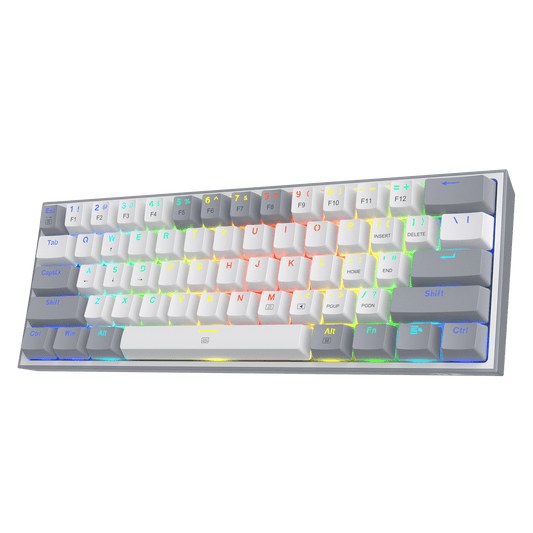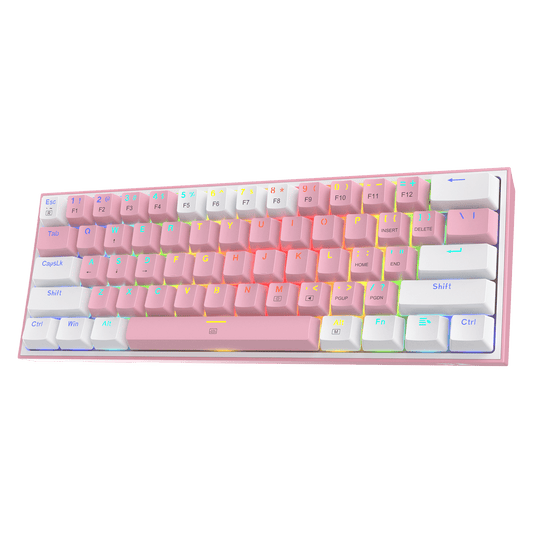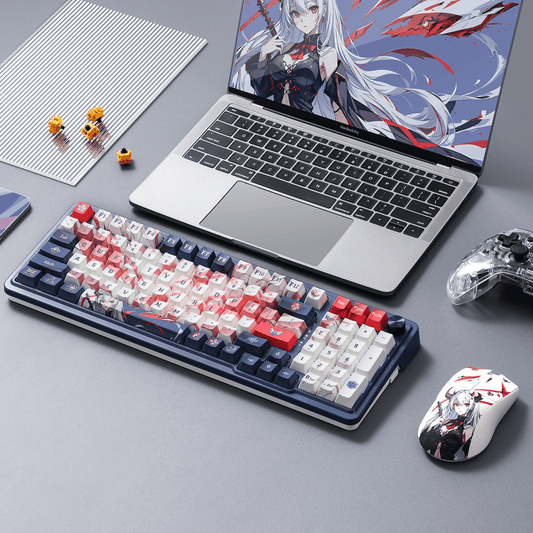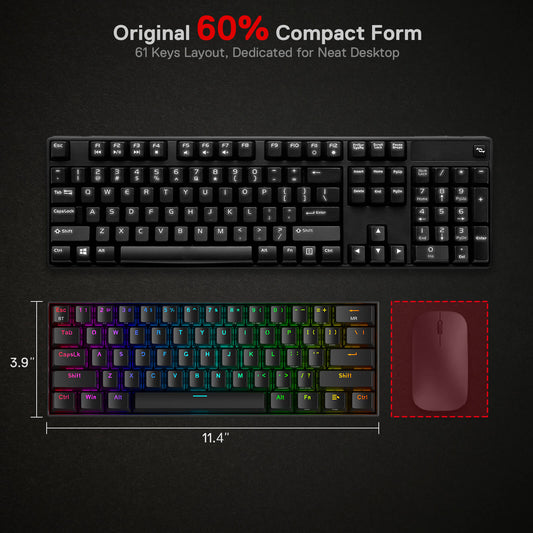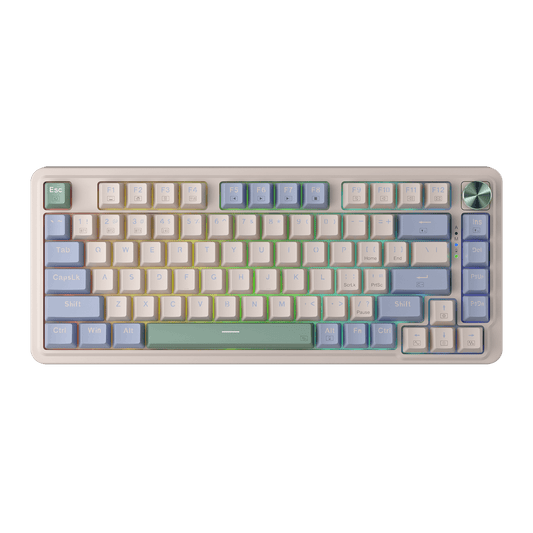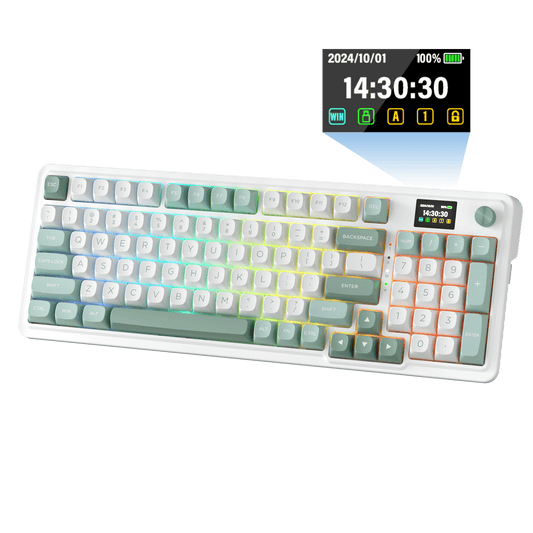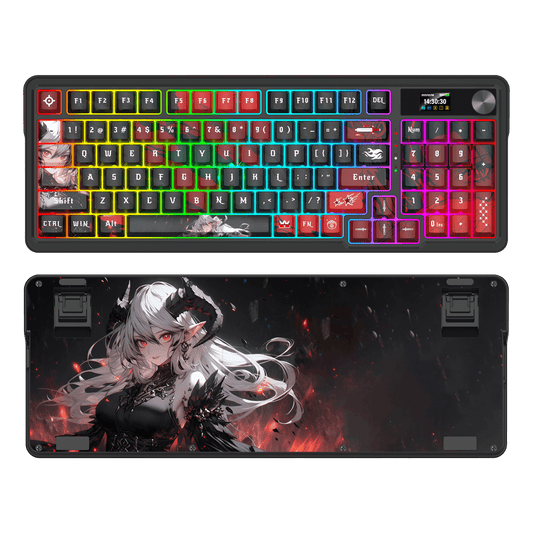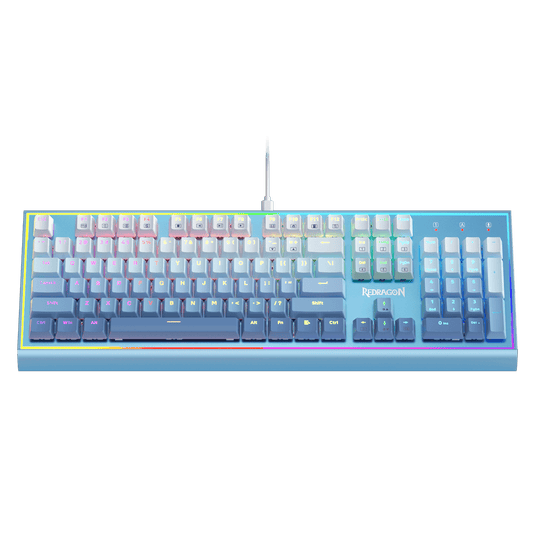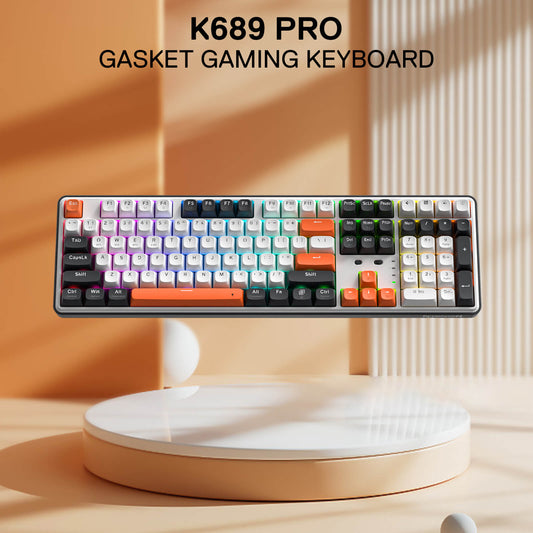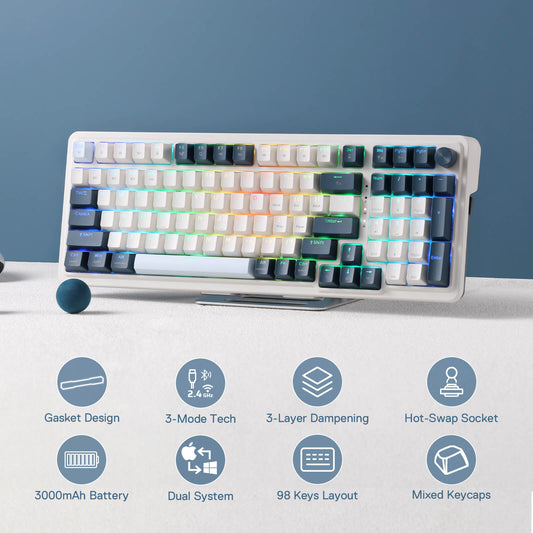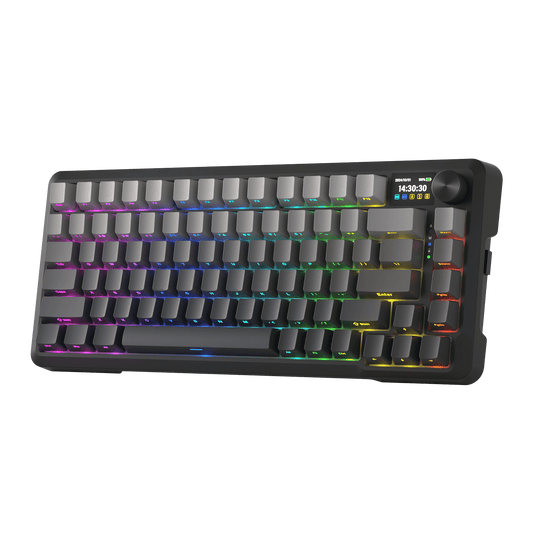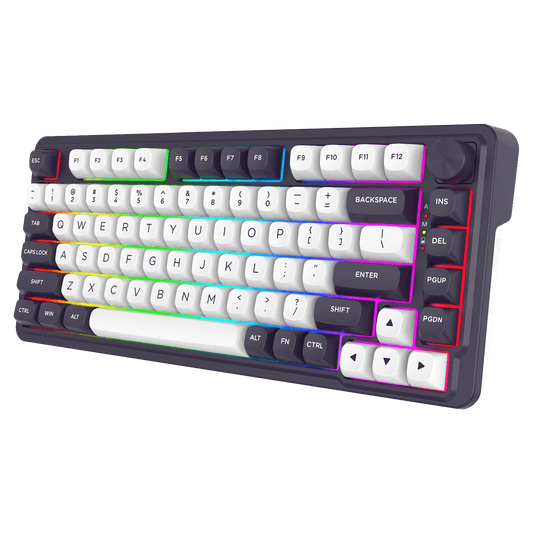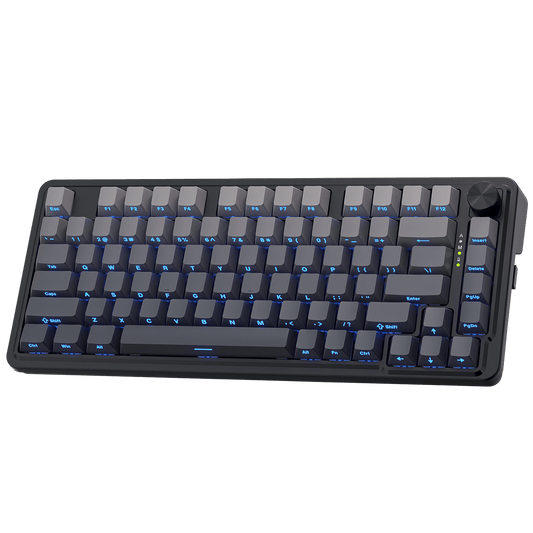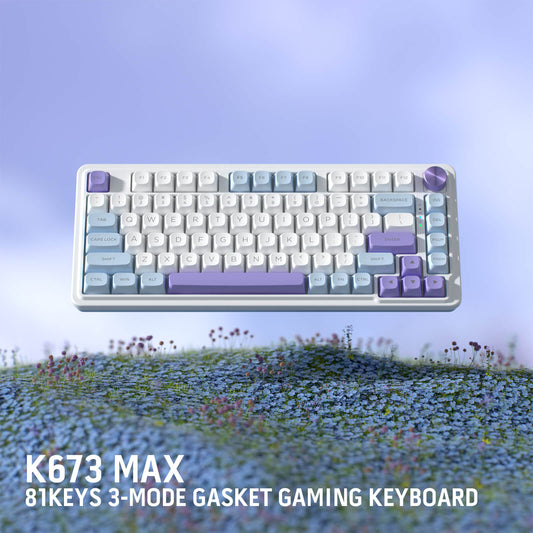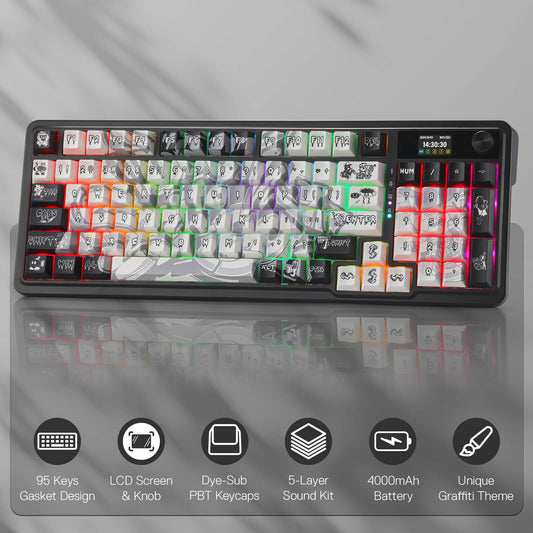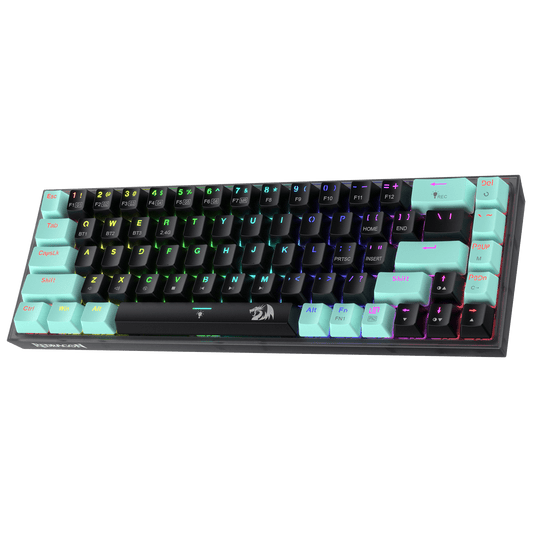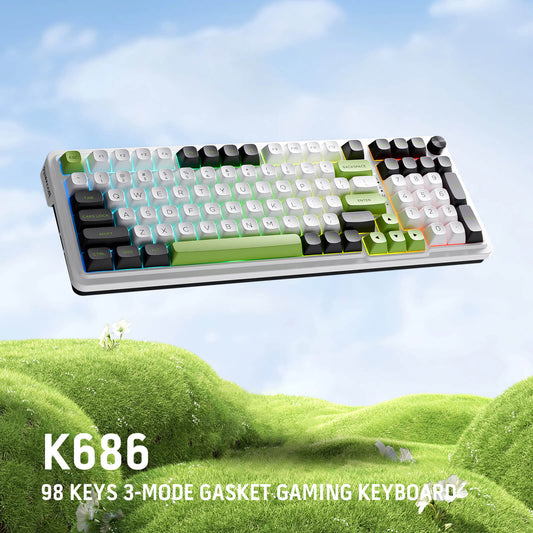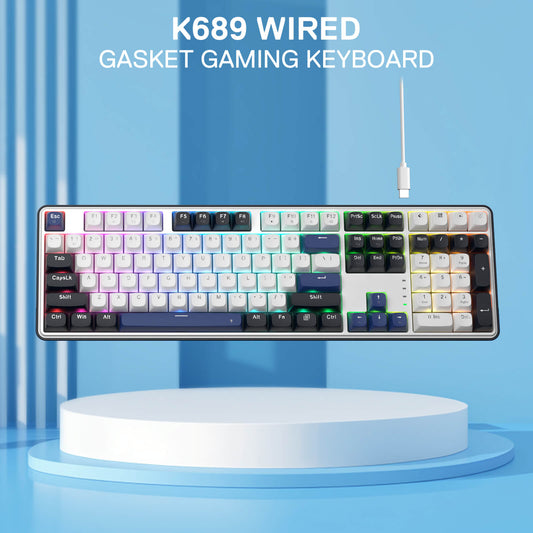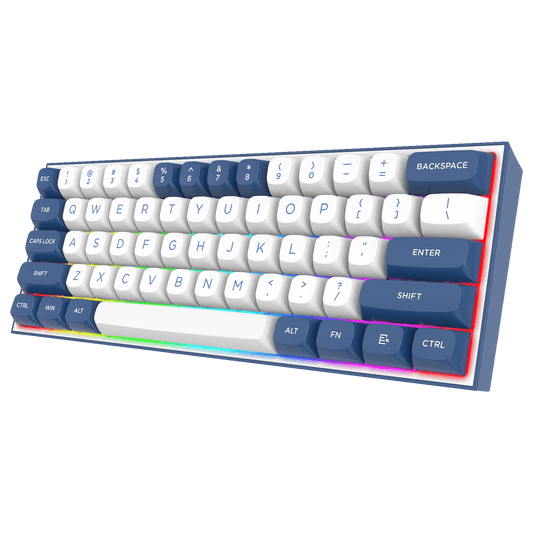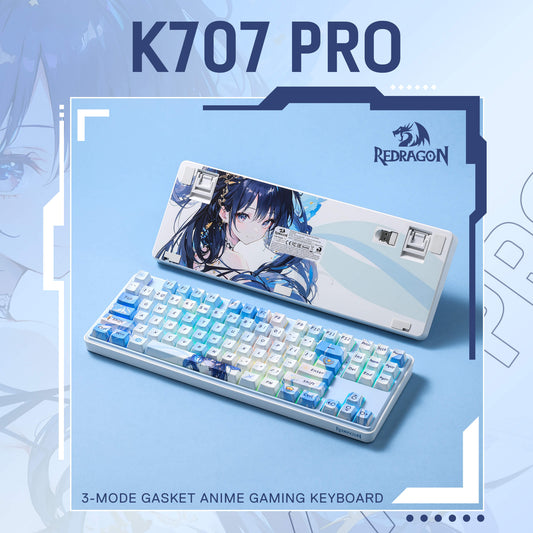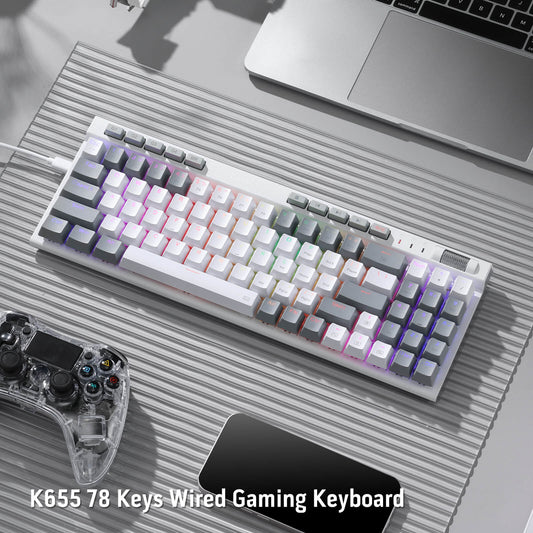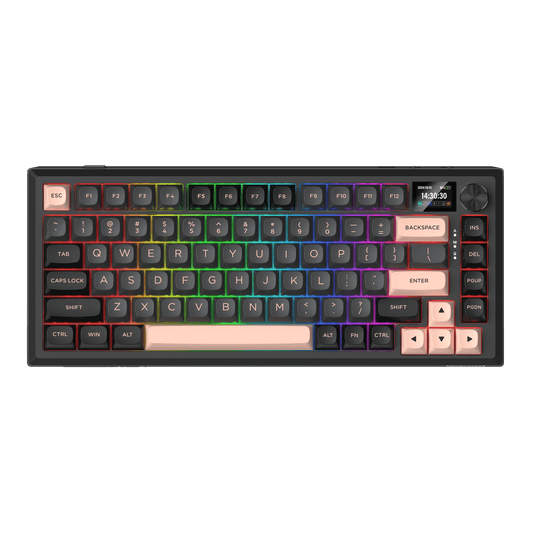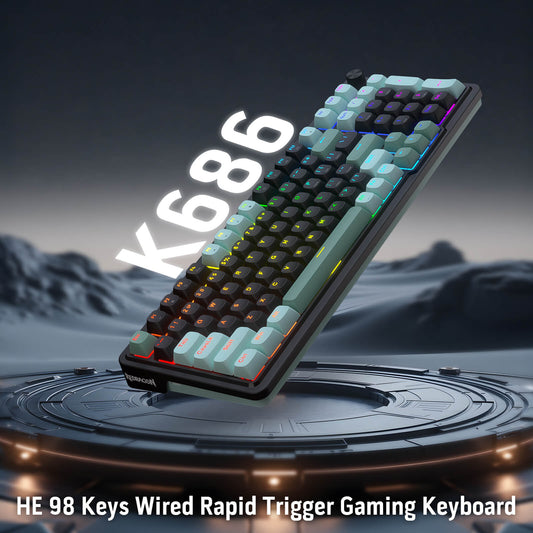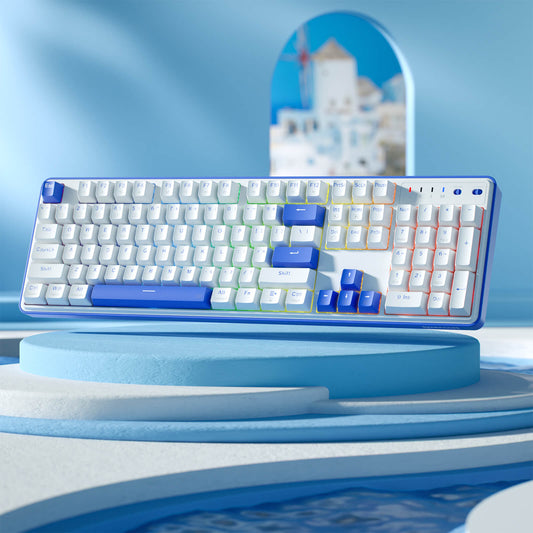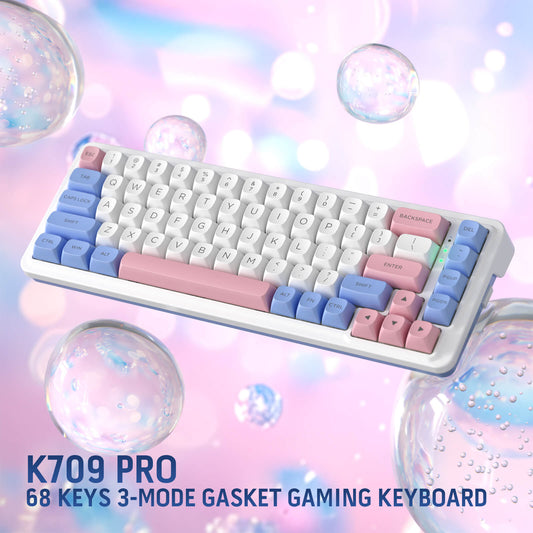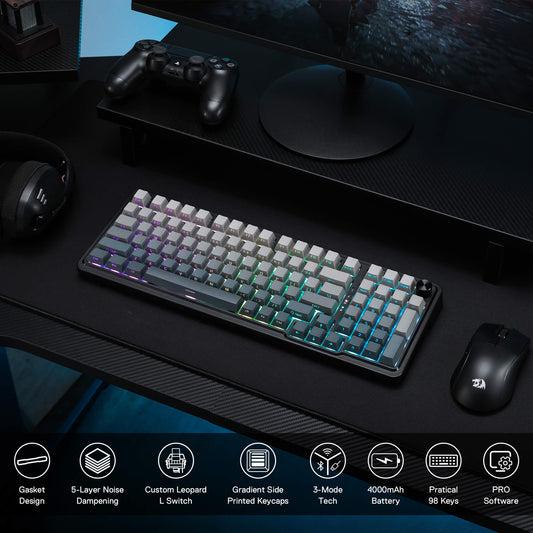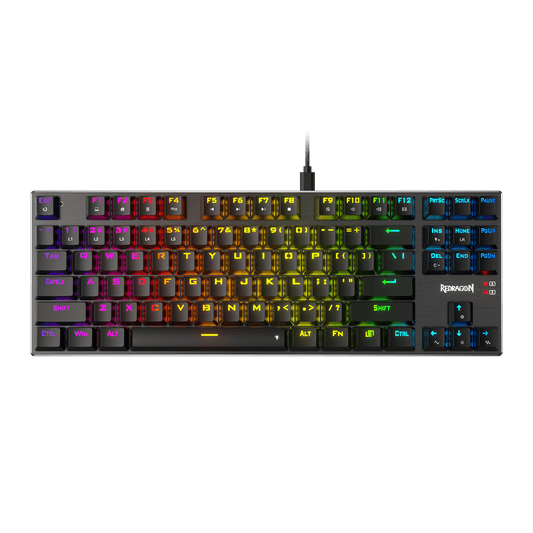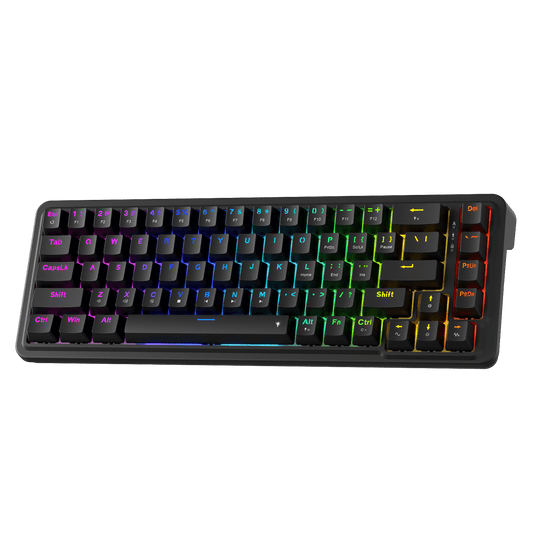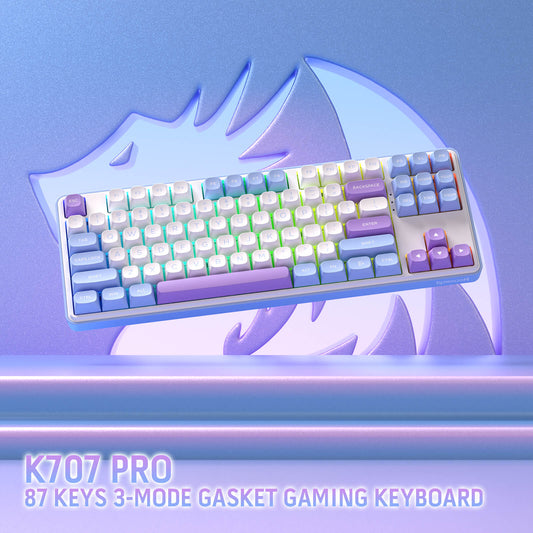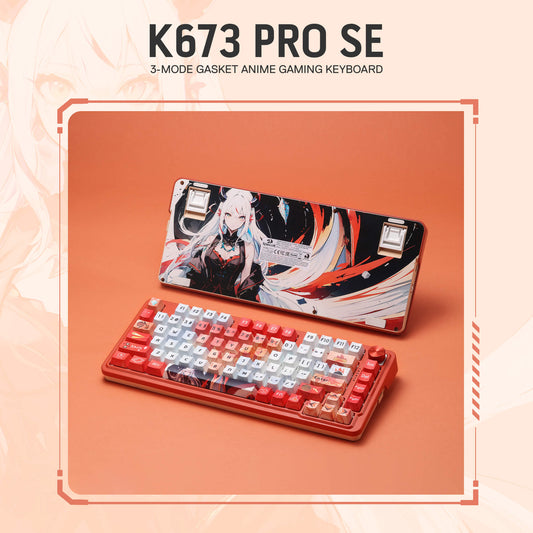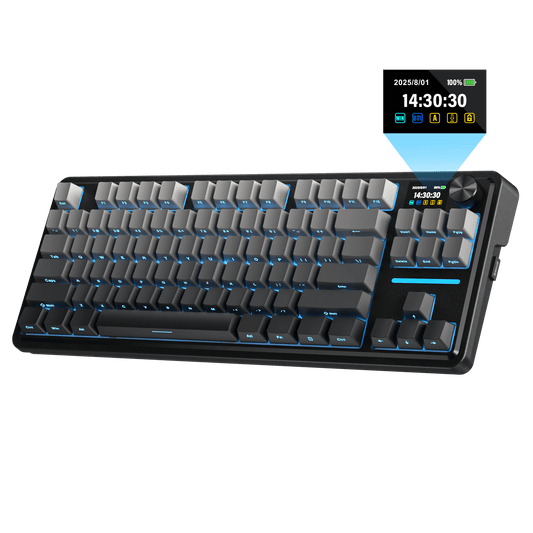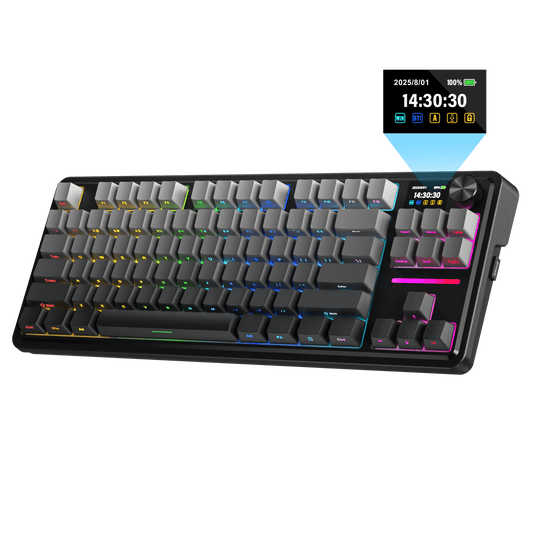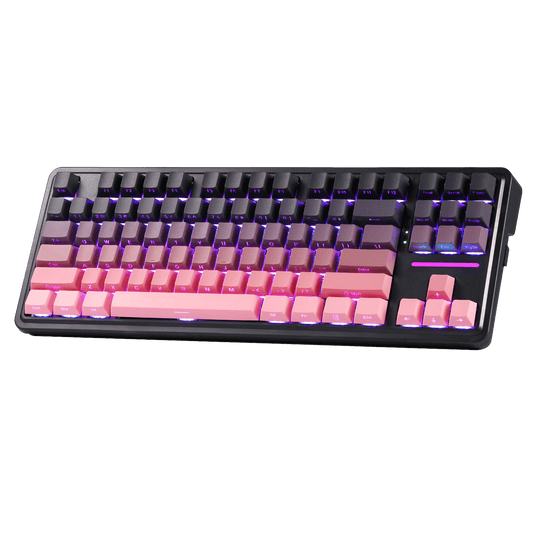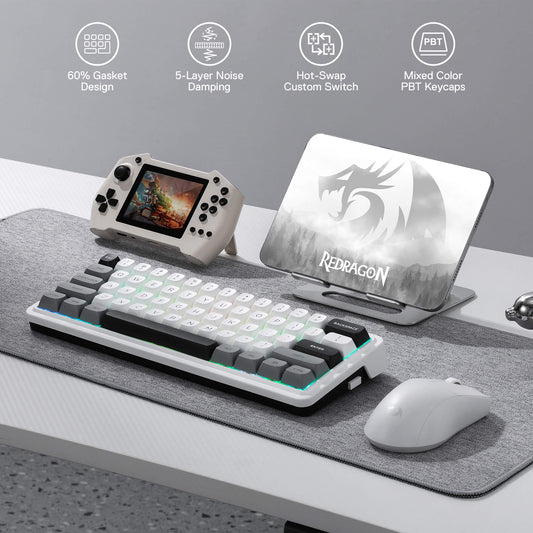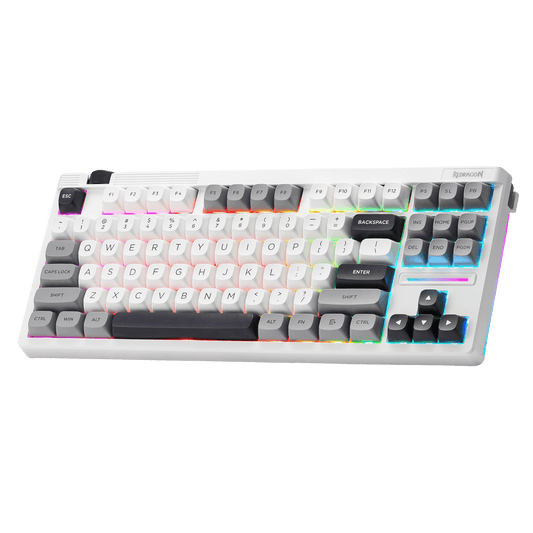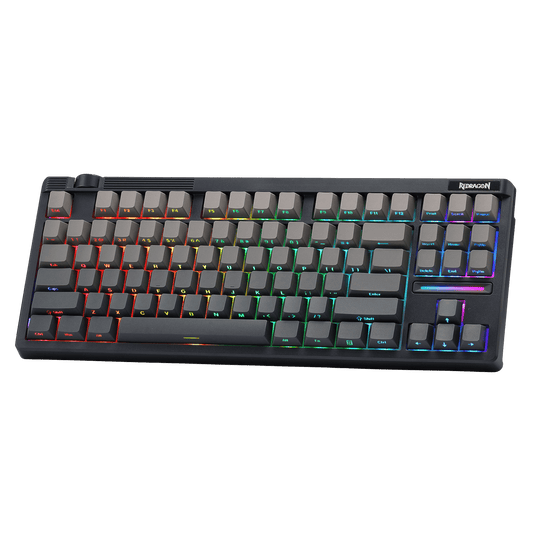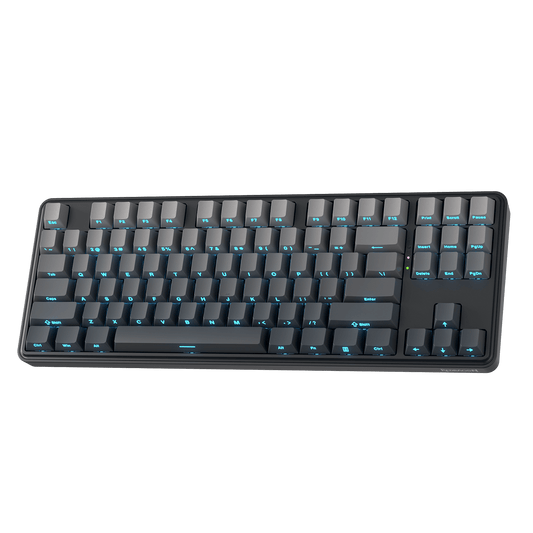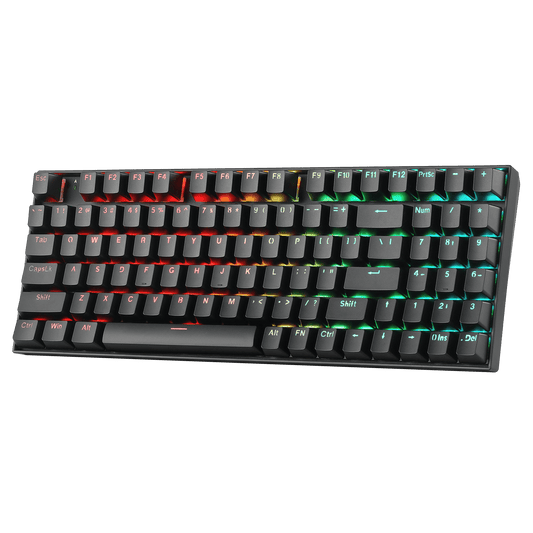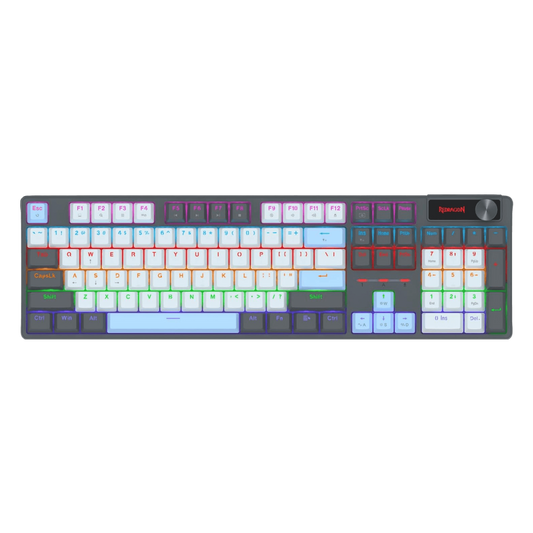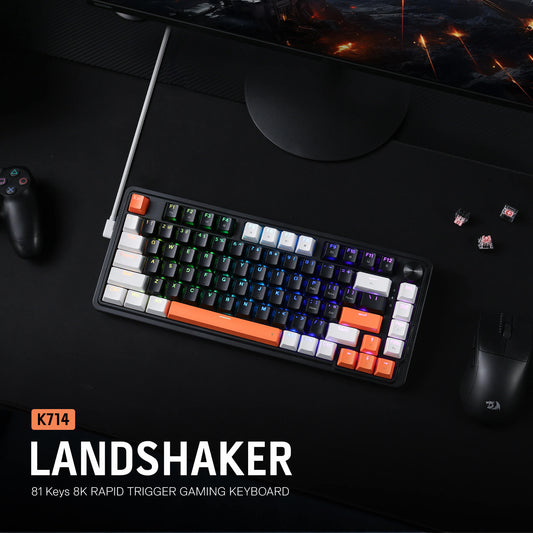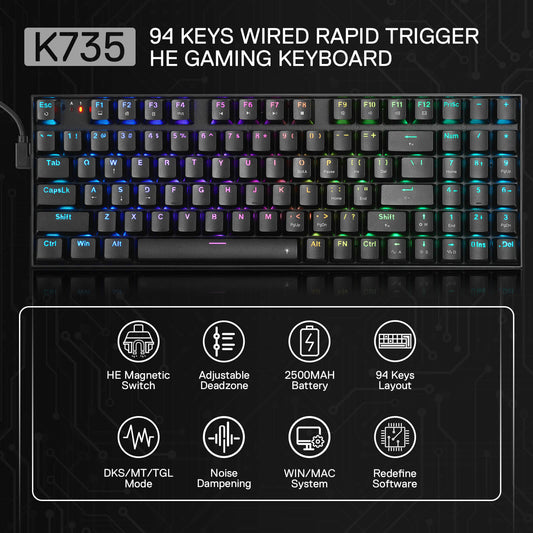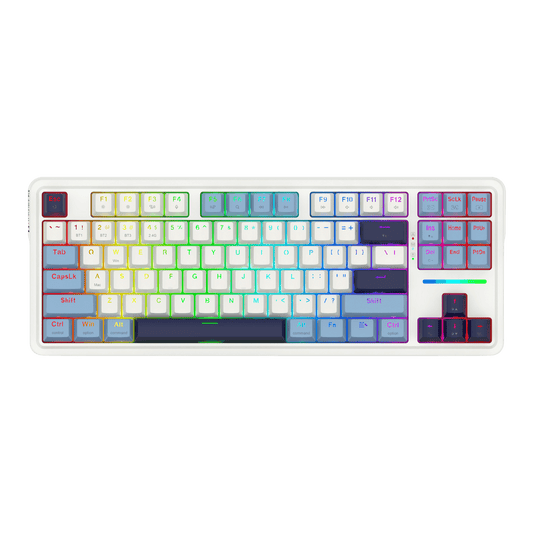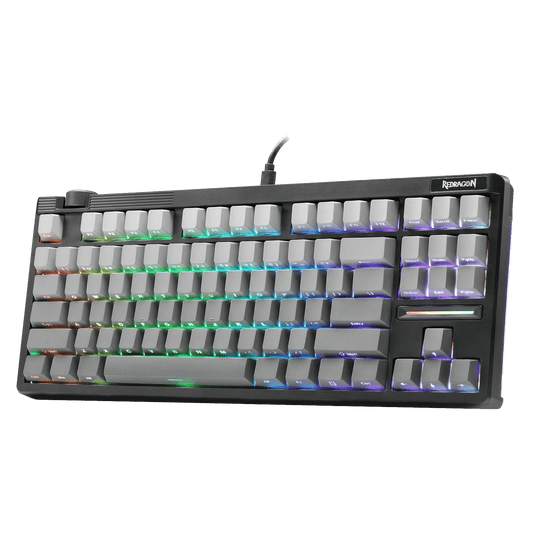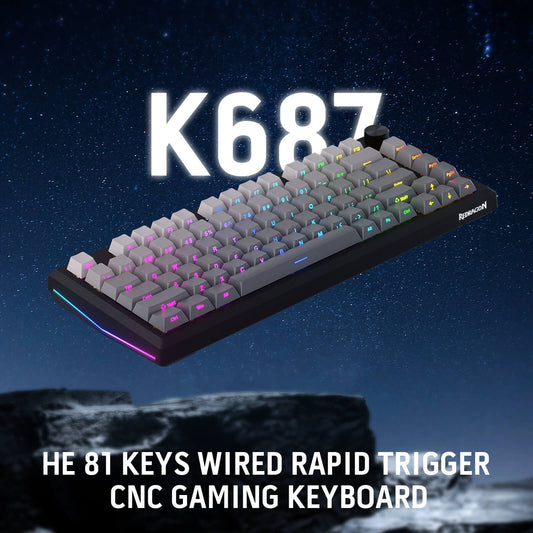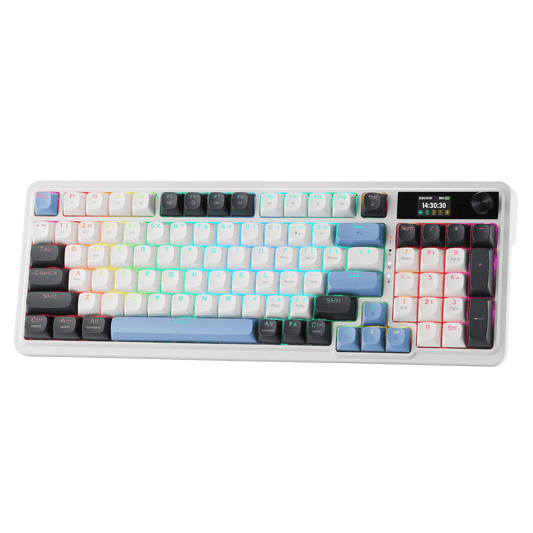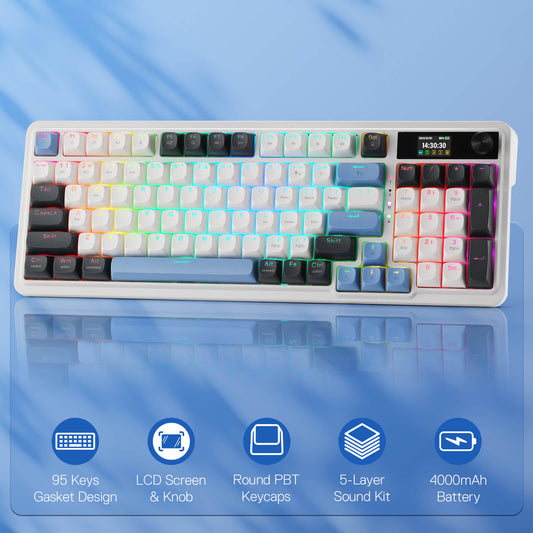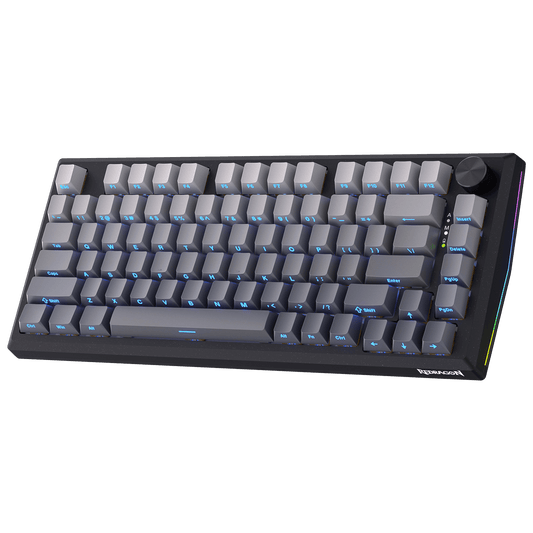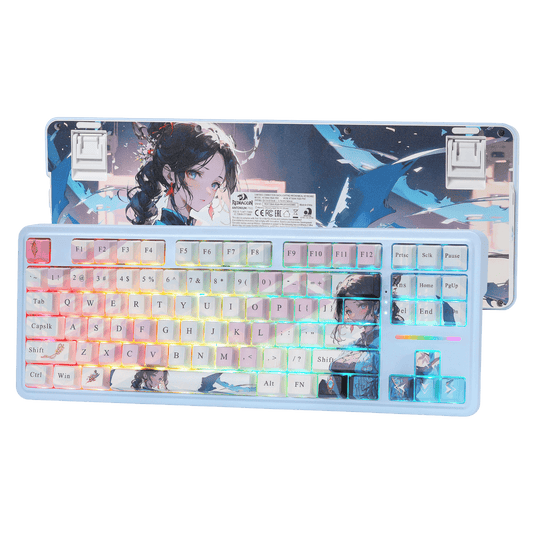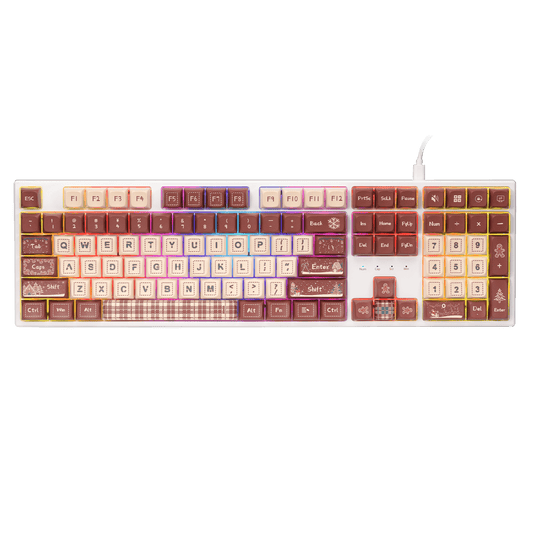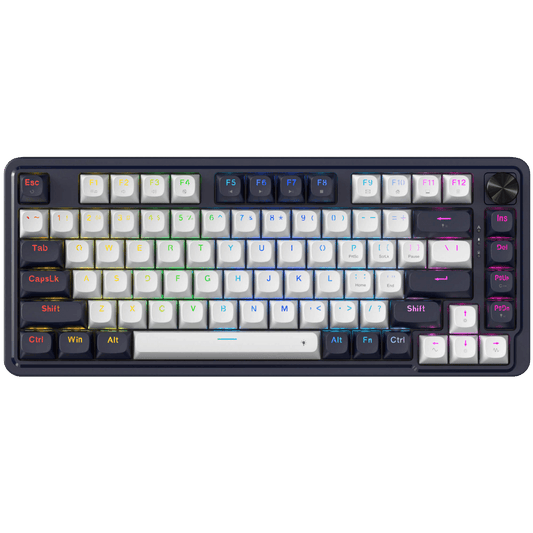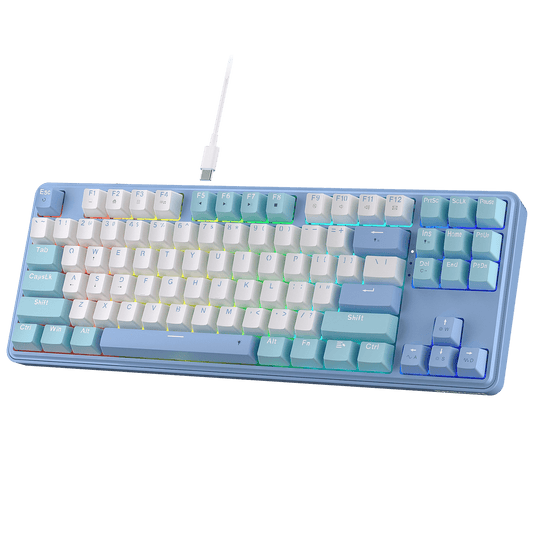Introduction
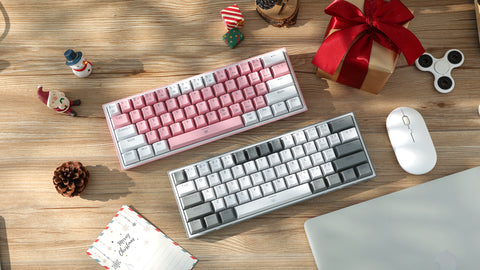
In today's digital age, the keyboard has become an essential tool for most people. Whether you're a gamer, a programmer, or simply someone who spends a lot of time typing, a mechanical keyboard can greatly enhance your typing experience.
However, with an abundance of options on the market, shopping for the perfect mechanical keyboard can be a daunting task. In this comprehensive guide, we will unravel the complexities of mechanical keyboards, covering everything from the basics to the different types of mechanical switches. By the end of this article, you'll be well-equipped to make an informed decision when purchasing your next mechanical keyboard.
Table of Contents:
What is Mechanical Keyboards?

A mechanical keyboard is a type of keyboard that uses individual mechanical switches for each key, as opposed to the rubber dome switches commonly found in traditional membrane keyboards. These switches are known for their durability, tactile feedback, and customizable actuation points. The key components that make up a mechanical keyboard include the keycap, the key switch, and the keyboard's PCB (printed circuit board).
The Basics of Mechanical Keyboards:
Keycap Materials
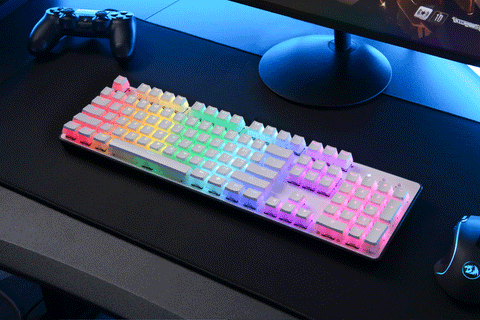
The keycaps on a mechanical keyboard can be made from different materials, such as ABS (acrylonitrile butadiene styrene) or PBT (polybutylene terephthalate). ABS keycaps are more common and offer a smooth surface, while PBT keycaps are known for their durability and resistance to wear.
Key Switches

The heart of a mechanical keyboard is its key switches. These switches come in various types, each offering a unique feel and sound when pressed. Cherry MX, Gateron, and Kailh are among the well-known switch brands that enjoy popularity. The key switch determines factors like actuation force, actuation point, and audible feedback. Common switch categories include linear, tactile, and clicky switches.
Layouts and Sizes
Mechanical keyboards come in a variety of layouts, including full-sized, tenkeyless (TKL), and compact layouts. Choose the size that suits your needs and desk space. Additionally, consider the keyboard's layout – QWERTY, Dvorak, and more.
Backlighting
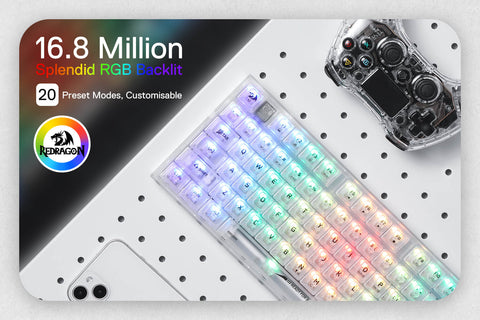
Many mechanical keyboards offer customizable RGB backlighting. Backlit keys can enhance aesthetics and visibility, especially in low-light environments. Make sure to explore lighting customization options.
Build Quality

The build quality of a mechanical keyboard is crucial. Look for features like an aluminum top plate, sturdy construction, and ergonomic design for long-term comfort.
Types of Mechanical Switches
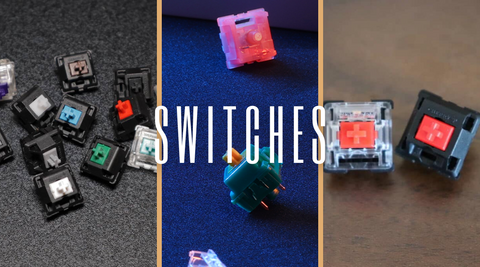
Mechanical switches are the core of your keyboard's typing experience. They determine the feel, sound, and actuation force required for each key press. Here are a few commonly encountered types of mechanical switches:
-
Cherry MX Switches: Cherry MX switches are one of the most popular choices, known for their durability and consistent performance. They come in various flavors, including Cherry MX Red (linear), Cherry MX Brown (tactile), and Cherry MX Blue (clicky).
-
Gateron Switches: Gateron switches are often considered Cherry MX alternatives. They offer a smooth keystroke and come in different variants, such as Gateron Red (linear), Gateron Brown (tactile), and Gateron Green (clicky).
-
Kailh Switches: Kailh switches are another Cherry MX alternative, known for their affordability and unique offerings. Kailh switches include options like Kailh Red (linear), Kailh Brown (tactile), and Kailh Box White (clicky).
-
A113/A120 Series: Redragon's A120 Series switches are a newer addition to the mechanical switch landscape. These switches offer a unique typing experience. For an in-depth exploration of Redragon's A113 & A120 Series switches, you can refer to the following blogs: Exploring Redragon A120 Series Mechanical Switches: The Ultimate Guide and Redragon A113 Bullet Mechanical Switch Guide
When shopping for a mechanical keyboard, it's important to consider your typing or gaming preferences. Some prefer the smooth, uninterrupted keypress of linear switches, while others enjoy the tactile feedback of tactile switches or the audible click of clicky switches.
Identifying Your Needs

When shopping for a mechanical keyboard, it's crucial to identify your specific needs and use cases. Different tasks and activities may require keyboards with specific features and characteristics. Let's delve into the requirements for gaming, typing, and programming to help you make the right choice:
Gaming:

-
Key Switch Type: Gamers often prefer mechanical keyboards with switches optimized for gaming. Linear switches, such as Cherry MX Red or Gateron Red, are popular choices because they offer a smooth and consistent keystroke without tactile bumps, making them ideal for rapid key presses.
-
Key Rollover and Anti-Ghosting: Look for a keyboard with N-key rollover and anti-ghosting features. These ensure that every keypress is registered, even during complex gaming maneuvers, preventing unintended keypresses from affecting your gameplay.
-
Customizable RGB Lighting: RGB backlighting not only enhances the aesthetics of your gaming setup but also provides practical benefits. You can assign different colors to specific keys or create lighting profiles for different games. Customizability is key.
-
Compact Design: Some gamers prefer compact keyboards, like tenkeyless (TKL) or 60% layouts, as they provide more desk space for mouse movement during gaming.
-
Macro Support: If you play games that require complex key combinations or rapid actions, a keyboard with dedicated macro keys or software-based macro support can be a valuable addition.
Typing:

-
Key Switch Type: For typing, tactile switches like Cherry MX Brown or Gateron Brown are often favored. These switches provide a slight bump to indicate the actuation point, which can improve typing accuracy.
-
Key Layout: Consider whether you prefer a full-sized keyboard or a more compact layout. A full-sized keyboard includes a numeric keypad, which can be beneficial for data entry, while a tenkeyless or compact layout saves desk space.
-
Keycap Material: PBT keycaps are preferred for typing due to their durability and resistance to wear. They offer a satisfying texture and tend to develop less shine over time.
-
Ergonomics: Ergonomic features, such as an adjustable keyboard tilt or wrist rest, can enhance typing comfort during extended typing sessions.
Programming:

-
Key Switch Type: Programmers often favor switches that strike a balance between typing and gaming. Tactile switches, such as Cherry MX Brown, provide feedback without being overly noisy.
-
Customization: A programmable keyboard can be incredibly useful for programmers. Look for a keyboard that allows you to customize key assignments and create macros to streamline your coding tasks.
-
Build Quality: A sturdy and durable keyboard is essential for programmers who spend long hours at the computer. An aluminum top plate and high-quality construction can ensure the keyboard's longevity.
-
Key Labels: Some programmers prefer keyboards with blank keycaps or customizable key labels to help them memorize shortcut keys and coding symbols.
Remember that your personal preferences also play a significant role in choosing the right mechanical keyboard. Try out different switch types and layouts if possible to determine what feels most comfortable and efficient for your specific needs. Ultimately, the perfect mechanical keyboard is one that aligns with your gaming, typing, or programming requirements and enhances your overall computing experience.
Budget Considerations
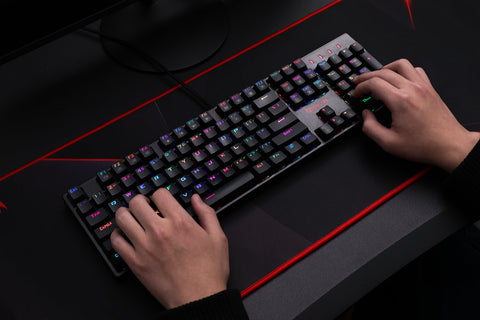
Before diving into the details of selecting a mechanical keyboard, it's essential to set a budget. Mechanical keyboards come in a wide range of prices, so determining how much you're willing to spend will help narrow down your options. Here are some budget considerations:
-
Entry-Level Options: If you're on a tight budget, you can still find quality mechanical keyboards at an affordable price. These keyboards often provide a good balance between cost and performance.
-
Mid-Range Keyboards: Stretching your budget a bit further will give you access to a range of mechanical keyboards with additional features and better build quality.
-
High-End Keyboards: If you're willing to invest more, premium mechanical keyboards offer top-of-the-line features and exceptional build quality. These keyboards cater to enthusiasts and professionals who seek the best typing and gaming experiences.
-
Total Cost: Consider not only the keyboard's cost but also any additional accessories you may need to complete your setup.
-
Sales and Discounts: Keep an eye out for promotions and sales events that can lead to significant savings.
-
Long-Term Value: Consider the overall value of your investment, as a higher-quality keyboard may offer a better long-term experience and durability.
Keyboard Size and Layout
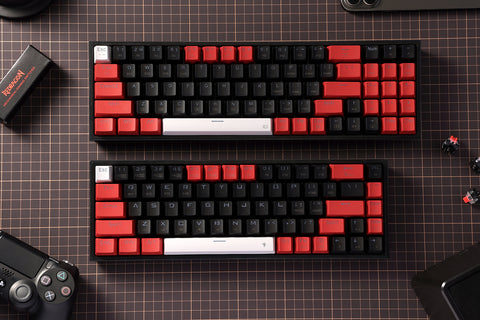
The size and layout of a keyboard are important factors to consider, and your choice depends on your personal preferences and needs:
-
Full-Sized Keyboards: These include a full set of keys, including the numeric keypad. They are suitable for general use, gaming, and data entry tasks.
-
Tenkeyless (TKL) Keyboards: TKL keyboards lack the numeric keypad, making them more compact and saving desk space. They are popular among gamers for the extra room for mouse movement.
-
Compact Keyboards: Compact keyboards, such as 60% or 75% layouts, further reduce the keyboard's size by removing additional function keys and navigation clusters. These are suitable for those who prioritize space-saving and portability.
-
Ergonomic Layouts: Some keyboards offer ergonomic designs that aim to reduce strain during long typing sessions. These often have split or curved layouts and wrist rests.
For a detailed exploration of different keyboard sizes and layouts, you can refer to the following blog: The Ultimate Size and Layout Guide for Mechanical Keyboards.
Choose a Switch that Fits Your Needs
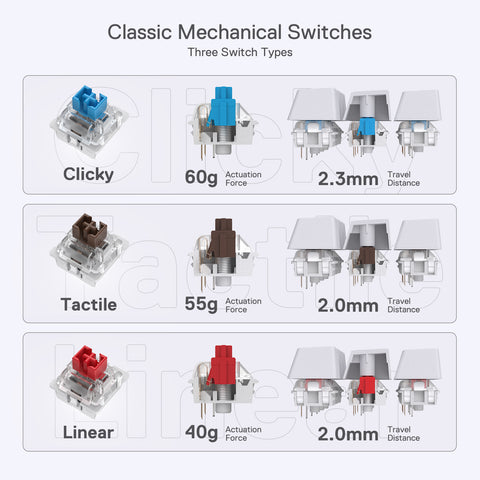
The type of key switch you select significantly impacts your typing or gaming experience. Here are some guidelines for choosing the right switch:
-
Linear Switches: Opt for linear switches like Cherry MX Red or Gateron Red for gaming, as they provide smooth, uninterrupted keypresses ideal for rapid key actuation.
-
Tactile Switches: For typing and programming, tactile switches like Cherry MX Brown or Gateron Brown provide a slight bump when the key actuates, improving typing accuracy and feel.
-
Clicky Switches: If you prefer an audible click with every keypress, consider clicky switches like Cherry MX Blue or equivalent alternatives. These are great for typing enthusiasts but can be a bit noisy.
Keycap Material and Profile:

-
Keycap Material: Keycaps may be crafted from ABS or PBT plastics. PBT keycaps are more durable and resistant to wear, while ABS keycaps tend to develop shine over time.
-
Keycap Profile: Keycap profiles determine the shape and feel of the keycaps. Common profiles include OEM, Cherry, and DSA. Choose a profile that suits your typing style and feels comfortable.
For an in-depth exploration of keycap materials and profiles, you can check out the following blog: The Ultimate Guide to Keycaps Material, Profile, and Beyond.
Features Worth Considering:
-
Customizable RGB Lighting: If you enjoy personalizing your setup, look for a keyboard with RGB backlighting that allows you to create custom lighting effects.
-
Media Controls: Some keyboards come with dedicated media keys, making it easy to control audio and playback without leaving your main task.
-
N-Key Rollover and Anti-Ghosting: Essential for gamers, these features ensure that all keypresses are registered, even during complex combinations.
-
Programmability: For users who want to customize key functions and macros, look for keyboards with programmable capabilities.
-
USB Pass-Through: Some keyboards have built-in USB ports that can be handy for connecting peripherals or charging devices.
-
Wrist Rest: An integrated or detachable wrist rest can provide comfort during long typing sessions.
Cheap vs. Premium Features
When choosing a mechanical keyboard, you'll encounter a range of features that can vary from budget-friendly to premium. Here's a comparison of cheap vs. premium features:

Conclusion
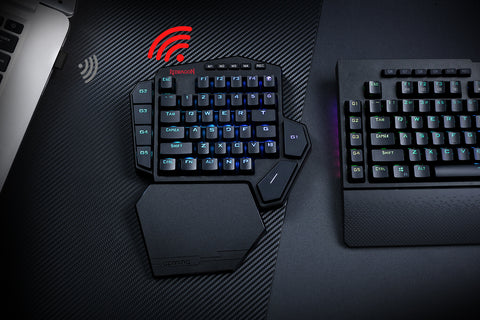
Choosing the right mechanical keyboard is a decision that involves a multitude of factors. It's not just about budget; it's about finding the keyboard that aligns perfectly with your unique needs and preferences. Whether you're a gamer seeking a competitive edge, a typist aiming for comfortable productivity, or a programmer crafting lines of code, there's a mechanical keyboard out there for you.
Consider the keyboard size and layout that fits your workspace and lifestyle. Dive into the world of key switches, exploring linear for gaming, tactile for typing, and clicky for that satisfying sound. Think about keycap materials and profiles to enhance your overall typing experience.
Moreover, the features worth considering, including customizable RGB lighting and advanced software, allow you to make your keyboard truly yours. The build quality is more than aesthetics; it's about durability and longevity. And in this digital age, the wired vs. wireless debate adds another layer of choice to consider. Weigh the reliability and low latency of wired keyboards against the mobility and tidiness of wireless options.To illuminate your path in this vibrant world, the ever-evolving spectrum of RGB lighting can provide a visually engaging journey. Discover a world of possibilities through advanced software, and feel the durability and luxury of premium build quality.
In the end, the perfect mechanical keyboard is a reflection of you, enhancing your computing experience. So, choose wisely, and let the tactile satisfaction of mechanical keys empower your daily tasks and gaming adventures. May your keys be as distinctive as your journey.
FAQs
- How Much Is A Good Mechanical Keyboard?
- The price of a good mechanical keyboard can vary significantly. Budget-friendly options can start at around $50, mid-range keyboards may range from $100 to $150, and premium, high-end mechanical keyboards can go well beyond $200. The price depends on the brand, features, build quality, and switches.
- What is a reasonable price for a mechanical keyboard?
- A reasonable price for a mechanical keyboard depends on your specific needs and budget. It's possible to find quality mechanical keyboards in the range of $70 to $150 that offer a good balance between price and performance.
- Do pro gamers use mechanical keyboards?
- Yes, many professional gamers use mechanical keyboards. Mechanical switches are favored for their tactile and consistent keypresses, which can be crucial for gaming precision.
- Are low profile mechanical keyboards worth it?
- Low profile mechanical keyboards are worth considering if you prefer a thinner design and reduced key travel. They can be more portable and may provide a different typing experience, but it ultimately depends on your personal preferences.
- Should I buy red or blue switches?
- The choice between red and blue switches depends on your preference and use case. Red switches are often preferred for gaming due to their linear, smooth keypress, while blue switches are known for a tactile bump and audible click, making them popular for typing enthusiasts.
- Are cheap mechanical keyboards better than membrane?
- In most cases, yes. Cheap mechanical keyboards tend to provide a better typing experience and durability compared to membrane keyboards. However, the quality can vary, so it's essential to research and choose a reputable brand.
- What are the cons of a mechanical keyboard?
- Some cons of mechanical keyboards include a higher price point compared to membrane keyboards, potential noise from clicky switches, and a heavier weight in some models. It's also a matter of personal preference, and not everyone may enjoy the tactile feel of mechanical switches.
- What are red switches best for?
- Red switches, with their linear and smooth keypress, are best suited for gaming. They allow for rapid key actuation without the tactile bump or click found in other switch types.
- Why do people prefer mechanical keyboards over membrane?
- People prefer mechanical keyboards for their tactile feedback, durability, and consistent keypress performance. The physical actuation of mechanical switches is often preferred over the soft, rubber dome feel of membrane keyboards.
- Why do keyboard enthusiasts hate blue switches?
- Keyboard enthusiasts do not universally hate blue switches, but they may have reservations about them due to the loud and audible click sound that can be distracting in shared workspaces. Some people prefer a quieter typing experience and may opt for other switch types like red or brown.




































